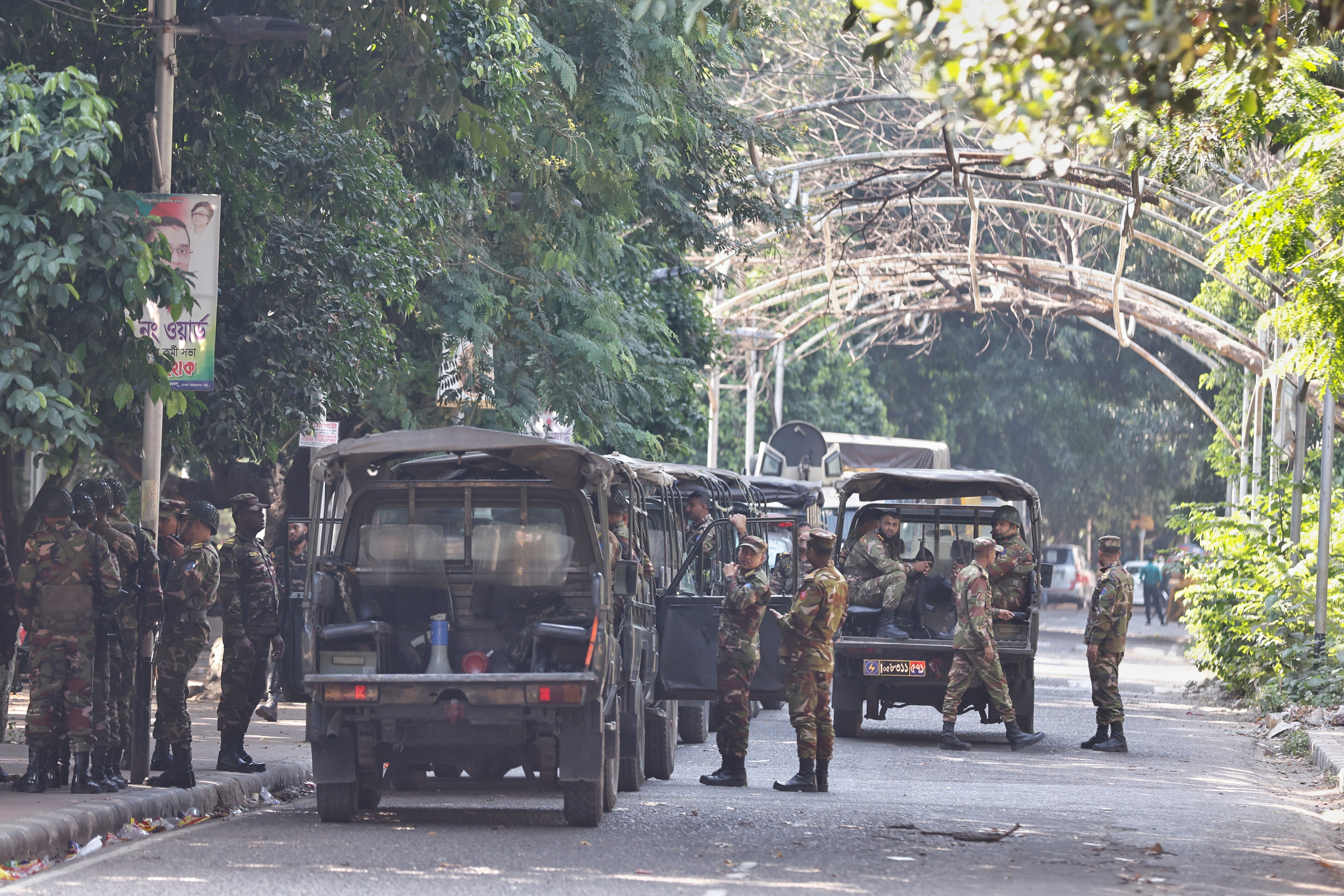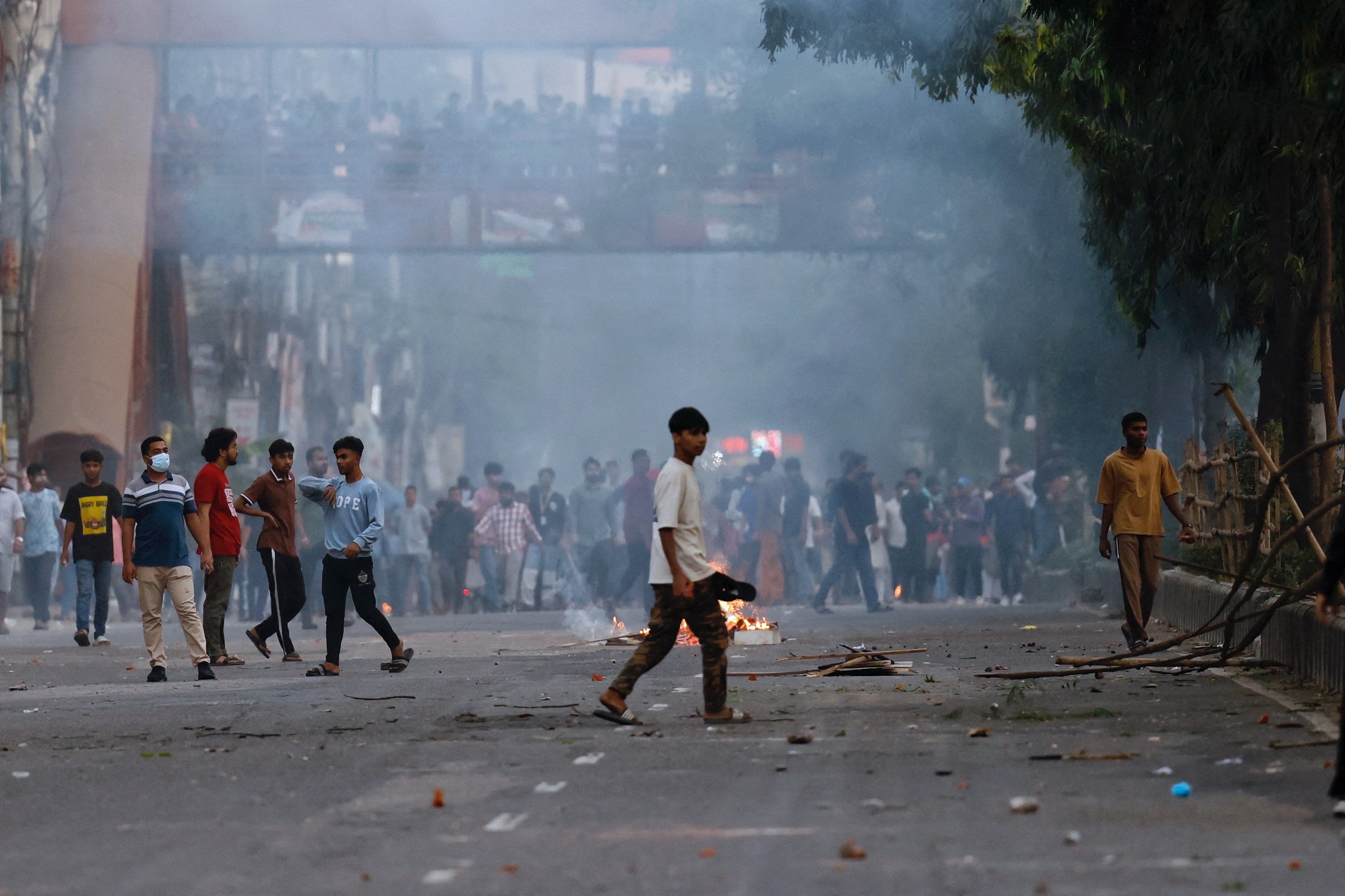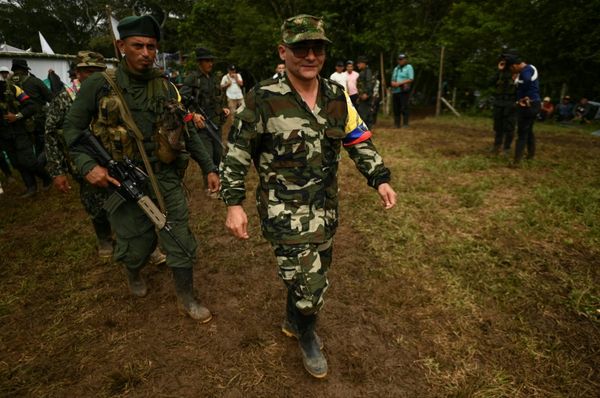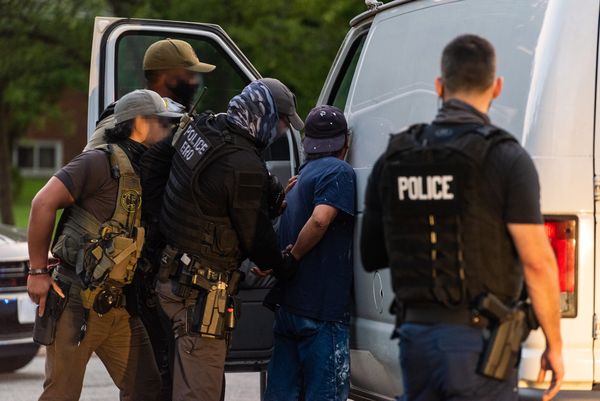Bangladesh urged India to return Sheikh Hasina after a Dhaka tribunal sentenced the former prime minister to death for overseeing a deadly crackdown on street protests in 2024.
The International Crimes Tribunal, a domestic court for trying grave offences such as genocide and crimes against humanity, delivered its ruling against Ms Hasina on Monday. It also gave the death penalty to her home minister Asaduzzaman Khan.
Ms Hasina and Mr Khan fled to India after last year’s mass protests toppled their Awami League party’s 15-year rule. They were tried and convicted in absentia.
The tribunal said they were responsible for deploying lethal force, including attack helicopters and drones, during weeks of demonstrations sparked by a dispute over quotas in state jobs. The demonstrations soon snowballed into a wider uprising against Ms Hasina’s authoritarian rule, culminating in a storming of her house in Dhaka and her escape to the neighbouring country.
Bangladesh’s interim rulers say over 800 people were killed and almost 14,000 injured, while UN estimates from February put the death toll as high as 1,400.

Ms Hasina rejected the allegations, insisting that she and Mr Khan “acted in good faith and were trying to minimise the loss of life”.
“We lost control of the situation but to characterise what happened as a premeditated assault on citizens is simply to misread the facts,” she said in a statement.
The former leader also denounced the tribunal’s proceedings as “biased and politically motivated”.
Hasina, 78, is entitled under Bangladeshi law to appeal the ruling only if she’s arrested or surrenders within 30 days, a mechanism that raises practical and legal questions as she remains outside the country and is wanted as a fugitive by the court.
The interim administration described the ruling a milestone and asked New Delhi to “immediately hand over these two convicts”.
“We urge the Indian government to immediately hand over these two convicts to the Bangladeshi authorities,” the foreign ministry said.
“It’s also a legal obligation for India as per the existing extradition treaty between the two countries.”
India acknowledged the ruling but made no comment about sending Ms Hasina or Mr Khan back.
“As a close neighbour, India remains committed to the best interests of people of Bangladesh, including in peace, democracy, inclusion and stability in that country,” India’s external affairs ministry said. “We’ll always engage constructively with all stakeholders to that end.”

Ms Hasina’s son told the Associated Press from the US that the verdict was “a joke and meaningless”.
“My mother is safe in India,” Sajeeb Wazed said. “The trials were so legally flawed they won't survive any challenge once rule of law returns to Bangladesh.”
The tribunal, chaired by Justice Golam Mortuza Mozumder, delivered its ruling live on television for several hours.
Bangladesh remains unsettled following Ms Hasina’s ouster on 5 August 2024, with human rights groups reporting widespread abuses during the unrest and warning of continuing political repression.
Muhammad Yunus, the Grameen Bank founder who was installed as interim leader after Ms Hasina’s fall, welcomed the verdict.
“No one, regardless of power, is above the law,” the Nobel laureate said, adding that ordering lethal force against “young people and children, whose only weapons were their voices”, violated fundamental principles of governance.
The opposition Bangladesh Nationalist Party, led by former prime minister Khaleda Zia, also praised the ruling. Secretary General Mirza Fakhrul Islam Alamgir said that the verdict signalled a “burial of all forms of dictatorship on this country's soil”.
In the wake of the ruling, Dhaka saw renewed clashes on Monday. Police used batons and stun grenades as crowds gathered around the tribunal and at symbolic locations, such as the home of Sheikh Mujibur Rahman, Ms Hasina’s father and the South Asian country’s independence leader.
On Tuesday, the Awami League declared a nationwide shutdown to protest the verdict.
The interim administration had deployed soldiers, paramilitary border guards and police around the Supreme Court ahead of the verdict. Nearly 50 arson attacks on vehicles and a number of crude bomb explosions had been witnessed nationwide over the past week, killing at least two people, according to local media.

Parties across the political spectrum urged India to comply with Dhaka’s request. The BNP criticised India for giving refuge to “a fugitive criminal”. Jamaat-e-Islami said India should act as a “good neighbour”, while the National Citizen Party called the sentence “appropriate justice”.
Asif Nazrul, legal adviser to the interim government, said Dhaka would write again to India.
“If India continues to shelter this mass murderer,” he said, “then India must understand that it is an act of hostility.”
New Delhi previously acknowledged receiving a diplomatic note seeking Ms Hasina’s extradition but had not responded substantively before Monday’s ruling.







